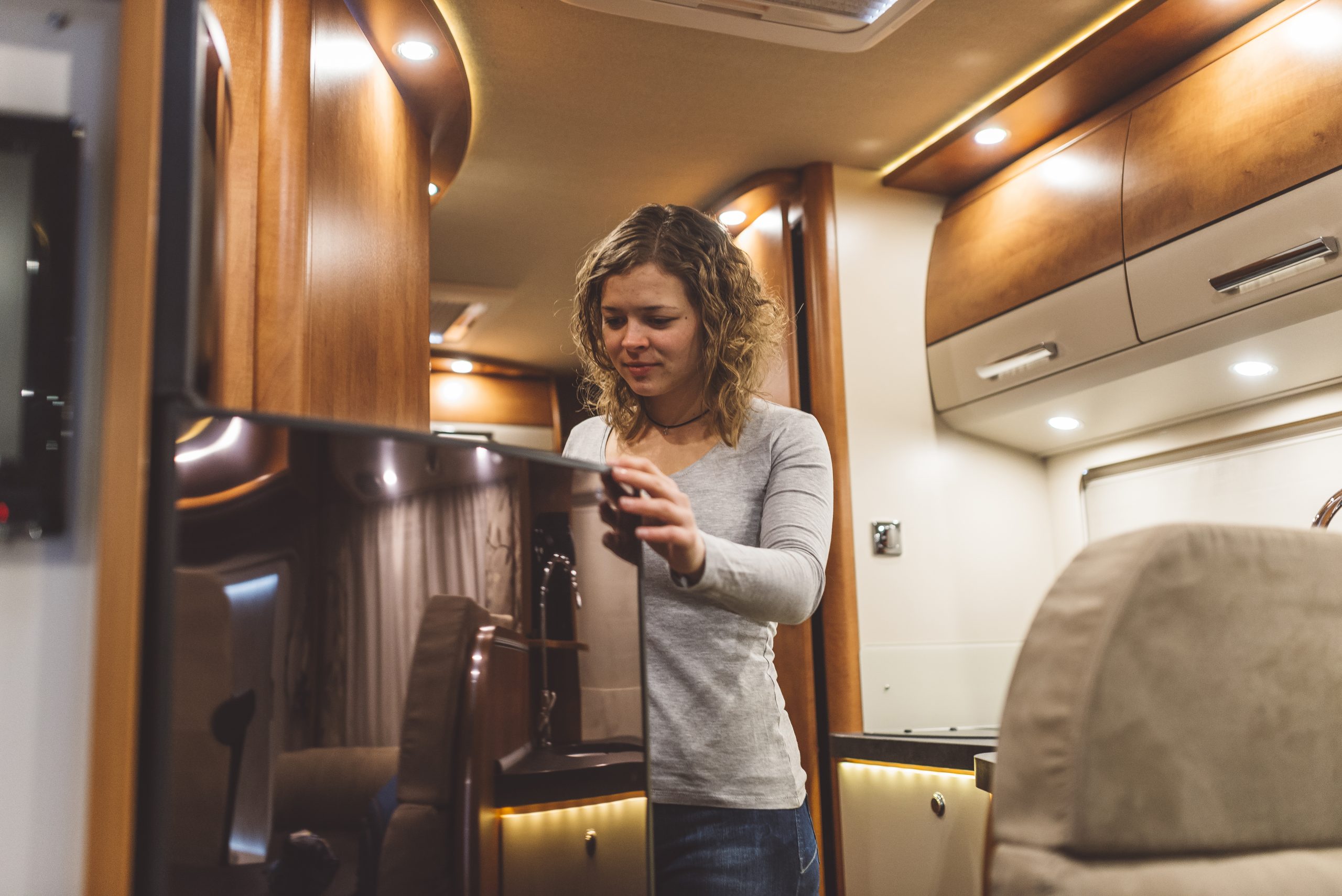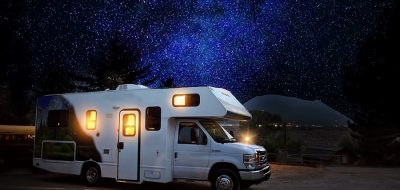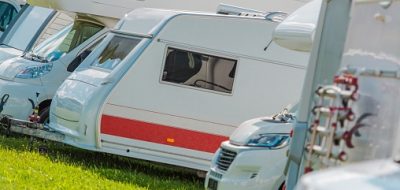 Hi, folks! We have a bunch of refrigerator questions this month. The RV refrigerator is the source of a lot of frustration and confusion, especially for new RVers. I hope that some of these common questions and answers will help you with any refrigerator issues you may have. Remember to send your RVing questions to [email protected]!
Hi, folks! We have a bunch of refrigerator questions this month. The RV refrigerator is the source of a lot of frustration and confusion, especially for new RVers. I hope that some of these common questions and answers will help you with any refrigerator issues you may have. Remember to send your RVing questions to [email protected]!
Mark:
We have a 2008 Puma travel trailer. It would be convenient if we could start the reefer and let it run while traveling on the road to our destination. If we did this, it would be cold when we arrived and set up the trailer. Could there be a problem running the refrigerator, using propane for operation, while traveling? Your thoughts/comments would be appreciated. Thanks, Richard.
Hi, Richard,
Operating the refrigerator on propane while traveling is one of those controversial issues that will always stimulate a lively discussion around the campfire. Most RV refrigerators will operate quite effectively on propane while you are rolling down the road. Most refrigerators will not have problems with the flame blowing out, and the constant motion keeps everything flowing smoothly in the cooling system, so, technically, it is no problem to run them. The key issues are safety-related: There is an open flame back there in the refrigerator compartment, so it is absolutely critical to shut the refrigerator off before you approach any kind of fuel-dispensing facility. In fact, before you approach a fuel station or propane fill station, all appliances that are capable of producing a flame or a spark must be turned off. Also, the fact that the propane must be turned on at the tank in order to operate the refrigerator may create a hazard in case of an accident or even a tire failure. If anything happens that creates a hole, crack or leak in the propane supply piping in the RV, you have an instant fire/explosion hazard just waiting for a spark. It really is safer to drive with the propane supply turned off at the tank. Most folks find that, for the average trip, the refrigerator will maintain a low enough internal temperature to keep your food fresh. It is also possible to freeze some Blue Ice packs the night before and use them in the refrigerator compartment to help keep everything cold while traveling.
Dear Mark,
Would you recommend connecting an inverter to the DC lines that power an RV refrigerator and plugging the AC power cord into it while being in transit to avoid the hazards of traveling with the propane in service? Respectfully, Norm
Hi, Norm,
Running the refrigerator on an inverter is generally a good option for motorhome owners but somewhat problematic for trailers and 5th-wheels. In most motorhomes, your house batteries are charged by the vehicle’s alternator while driving, and the charge wiring is usually fairly large-gauge. That means that the alternator is capable of supplying a lot of amps to the battery bank on demand. That is a good thing, because the electric element in most RV refrigerators will draw between 250 and 500 watts, depending on the size of the refrigerator. An inverter is going to draw 25 to 50 DC amps to operate that element. That means you must wire the inverter directly to the battery bank, using appropriate-sized wire to support the large current draw. It also means that you need to be aware of the demands your inverter will be making on your house batteries when the engine is off. (When the engine is running, the alternator should be able to keep up with the demand.) This is a great way to keep your refrigerator running safely while traveling since you can keep the propane turned off at the tank. Why is it a problem for trailers? Most trailers have a wire that runs back from the tow vehicle alternator, through the lighting umbilical cord, and to the trailer’s house batteries. Unfortunately, the length of the wire, and the fact that it is a small-gauge wire, generally limits the current available from the tow vehicle alternator to 10 amps or less. Because of this, your inverter will run down your trailer’s house batteries if you try to run the refrigerator since the incoming charge is not enough to keep up with the load. Trailers with large battery banks and solar panels can support an inverter/fridge setup while traveling, but most rigs with standard equipment won’t.
Mark:
Can a Dometic fridge leak fluid over time or get “tired”? We have a 1996 Trailmanor with a fridge that takes a long time to cool down (4 to 5 hours) even though the heat coming off the back is very hot. Also, the trailer had not been used in 1.5 years. Jan
Hi, Jan,
It is normal for an RV refrigerator to take some time to cool down from a hot start, so you may not have a problem. However, due to the age of your refrigerator, you are probably getting close to the end of its life. RV refrigerators, like any appliance, have a service life. Most refrigerators only last 8-10 years, with a few making it to 15 or more. Corrosion is often the killer, but when the cooling system rusts through, that usually completely kills the refrigerator. When a refrigerator starts to cool poorly, small obstructions in the cooling system may have accumulated over time, making the refrigerator less efficient. There might also be a problem with the heating element or propane burner that is contributing to poor performance. Given the age of your refrigerator, it is probably time to start saving up your pennies for a new one. If your refrigerator is still in really good condition inside and out, with no rust or damage, it is usually possible to have it refurbished with a new cooling system. This is a lot less expensive than buying a new one. Check out the links below.
Mark:
We have a Cardinal 5th-wheel with the fridge in the slide. During hot weather the temps rise as high as 44 degrees. We have never heard the two fans come on; they are installed about midway in the compartment behind the fridge. We wired them directly to a switch that we mounted inside a cabinet next to the fridge. We turn them on for various periods, sometimes as much as hours at a time. We also have a small battery-powered fan inside the fridge. We keep the temp setting on 5, which is the highest setting. We limit the number of times we open the door to morning, noon, and evening. We try to arrange items to allow for good air flow, but nothing seems to help. The freezer works fine. Overnight, without us opening the door, the temp will go down to 33 degrees but will rise quickly during the day. Could our problem be an improper installation? That is, either having too much or too little space between the coils and the outside wall of the RV, thereby not allowing proper air flow to the coils? Thanks, Vince
Hi, Vince,
It has been my experience that all RV refrigerators struggle somewhat during hot (100 degree-plus) weather. If your refrigerator works fine when it is cooler, it may simply be that you are expecting too much from it when it gets really hot. If it will maintain 40 – 45 degrees in hot weather and the freezer compartment stays frozen, that is actually pretty normal. In really hot weather, it may cool a little better on propane. In general, adding a fan to help move more air upwards in the compartment behind the refrigerator can be helpful, but it must actually increase the air flow from the bottom vent inlet to the top vent outlet to be effective. Check the compartment for anything that might be blocking the airflow, like a clogged screen in the roof vent or a piece of insulation coming loose. Unless the manufacturer really did some bad design work, the shape and size of the compartment should be adequate for the refrigerator, but there are always exceptions. You can download the installation manual for your refrigerator from the manufacturer’s website and check the clearances yourself if you suspect that is a problem with the installation.
Mark:
How level does an RV have to be before turning on the residential refrigerator in an RV?
Angie
Hi, Angie,
Residential refrigerators are fairly tolerant of off-level conditions. That’s because, unlike the typical gas/electric RV refrigerator that relies on gravity to circulate the refrigerant in the cooling system, residential units use an electric compressor to circulate the refrigerant. Try to get it as level as possible when you park, but, generally, with a residential refrigerator, if you can walk around inside without bouncing off the walls and furniture, the refrigerator will be happy.

Founded in 1978, the Escapees RV Club provides a total support network that includes a wide variety of services and opportunities:
- Mail Service- Escapees offers the largest private mail service in the country. Members are able to personalize their mail delivery with multiple options. Custom sorting options, delivery schedule and even mail scanning. We make it easy!
- Mapping Tool- Plug in your starting point and destination, and let us do the rest! Our mapping tool will show you discount parks along your route, as well as trusted commercial members and endorsed vendors to help you with all of your needs along the way.
- Education- From our annual Escapades to our discussion forum, we help you connect with fellow RVers to share experience and knowledge. For the hands-on learner, RVers’ Boot Camp is a great way to learn about RV operation, safety and maintenance. Our award-winning magazine is also a great resource for peer-to-peer advice from fellow RVers and industry experts.
- Community- When you see an Escapees sticker on a rig, you know you’ve found a friend. Escapees hosts a variety of events throughout the year, including convergences, excursions, chapter rallies and Escapade. Each of these offers the opportunity to connect with other RVers and make new friends.
A complete listing of all Escapees events and a comprehensive list of member benefits are found at www.escapees.com









Anonymous
We have 2005 four winds infinity A motor home with double freezer and double refrigerator doors and the fans are working freezer gets cold but the refrig does not get below 40 it is a Norcold I know it is older but everything seems ok we would prefer not to get a new what tips to test if cooling unit or a time for new refrigerator?